Resources
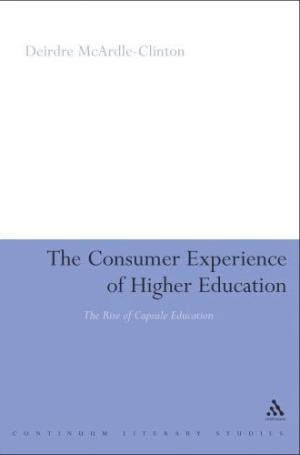
This monograph examines the philosophy underpinning current higher education provision. Contemporary culture seems to encourage consumers to purchase products where the product is shaped by the provider and the input of the consumer is very limited. Research suggests that students, their perceptions shaped by the educational experience they have undergone, view education as a commodity and require that information be packaged for easy consumption. The purpose of this study is to examine the current situation in education against the backdrop of an emerging trend that sees education as a product and students as consumers or customers. The literature provides a basis to argue that a qualification now is frequently a simulacrum while previously it represented knowledge and competency. (From the Publisher)
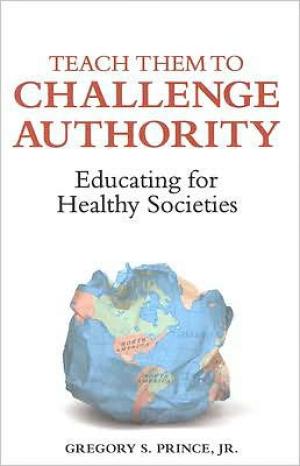
Teach Them to Challenge Authority gets to the heart of what education should really be about. Drawing on decades of experience, Gregory S. Prince Jr. moves seamlessly between his experience as President of Hampshire College and the broader picture made up of national and international issues. He demonstrates that the debate between "neutral" versus "engaged" universities could have radical consequences - not just for the world of education, but for society as a whole. (From the Publisher)

Globalization is changing the face of Higher Education across the world. Academics and students today are increasingly internationally mobile and, as such, an unprecedented number of international exchanges and cross-border education projects are being developed. The implications for individual universities are significant: international students can bring much-needed revenue to boost university coffers and stimulate university classrooms but they also have high expectations and demands. This book discusses the implications for those involved in managing the organizational processes and those designing programmes and supporting the student experience. A key concern in the text is that of reciprocal internationalization - the importance for universities to develop within an internationally-integrated environment rather than as national universities which accommodate the needs of people from other countries into their pre-existing practices. The emphasis throughout the discussion is therefore on the development of intercultural competences for university staff supported by sustainable international management practices. (From the Publisher)

Love, says the apostle Paul, "does not rejoice over injustice, but rejoices in the truth" (1 Corinthians 13:6). The theological explorations undertaken here all deal in one way or another with the liberating promise and the perplexing problem of truth in Christian life and witness, and with the ways that Christian theology and theological education in their various modes struggle both to seek the truth and to foster the aptitude to honor it. (From the Publisher)

In corporate and government bureaucracies, the standard method for making a presentation is to talk about a list of points organized onto slides projected up on the wall. For many years, overhead projectors lit up transparencies, and slide projectors showed high-resolution 35mm slides. Now "slideware" computer programs for presentations are nearly everywhere. Early in the 21st century, several hundred million copies of Microsoft PowerPoint were turning out trillions of slides each year. Alas, slideware often reduces the analytical quality of presentations. In particular, the popular PowerPoint templates (ready-made designs) usually weaken verbal and spatial reasoning, and almost always corrupt statistical analysis. What is the problem with PowerPoint? And how can we improve our presentations? This slim volume from legendary "information design" guru Edward Tufte answers these questions with Tufte's usual wit, concision, and style. (From the Publisher)
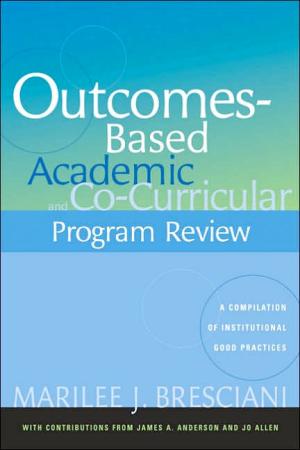
This book offers far more than an introduction to the principles of assessment of student learning outcomes in the context of program review. Within a clearly structured framework, it systematically shares the good practices of some forty institutions recognized by independent scholars for their improvements in teaching/learning, research, and service, to offer examples and ideas for others to learn from and adapt. While the book focuses on assessment of the teaching mission, these same practices apply equally to student affairs, service and research activities. This book is intended for faculty, administrators and staff responsible for implementing and sustaining outcomes-based assessment program review. It aims to help them understand the "what", "why" and "how" of outcomes-based assessment program review. Rather than adopting a prescriptive approach, it provides a rich array of case studies and ideas as a basis for reflection and discussion to help institutions develop solutions that are appropriate to their own missions and cultures. This book answers such questions as what does good outcomes-based assessment program review practice look like from an institutional perspective? How have others initiated and conducted the process? Why did they choose their particular approaches; and who is doing replicable work? It links effective assessment practices with cyclical program review so that the single process of outcomes-based assessment informs many purposes: program review, strategic planning, professional accreditation, institutional accreditation, and possibly even the assessment of general education. This book illustrates the components ofoutcomes-based assessment program review, presents the criteria for identifying good practices and suggests steps for implementing a sustainable outcomes-based assessment program—and does so in a way that will engage readers in critical inquiry about what works well and what needs to be improved. (From the Publisher)
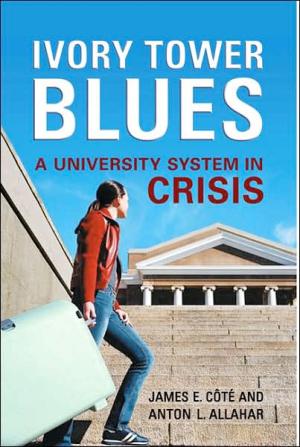
The present state of the university is a difficult issue to comprehend for anyone outside of the education system. If we are to believe common government reports that changes in policy are somehow making life easier for university graduates, we cannot help but believe that things are going right and are getting better in our universities. Ivory Tower Blues gives a decidedly different picture, examining this optimistic attitude as it impacts upon professors, students, and administrators in charge of the education system. Ivory Tower Blues is a frank account of the contemporary university, drawing on the authors' own research and personal experiences, as well as on input from students, colleagues, and administrators. James E. Côté and Anton L. Allahar offer an insider's account of the university system, an accurate, alternative view to that overwhelmingly presented to the general public. Throughout, the authors argue that fewer and fewer students are experiencing their university education in ways expected by their parents and the public. The majority of students are hampered by insufficient preparation at the secondary school level, lack of personal motivation, and disillusionment. Contrary to popular opinion, there is no administrative or governmental procedure in place to maintain standards of education. Ivory Tower Blues is an in-depth look at the crisis facing Canadian and American universities, the factors that are precipitating the situation, and the long-term impact this crisis will have on the quality of higher education. (From the Publisher)

They’re not the students strolling across the bucolic liberal arts campuses where their grandfathers played football. They are first-generation college students—children of immigrants and blue-collar workers—who know that their hopes for success hinge on a degree. But college is expensive, unfamiliar, and intimidating. Inexperienced students expect tough classes and demanding, remote faculty. They may not know what an assignment means, what a score indicates, or that a single grade is not a definitive measure of ability. And they certainly don’t feel entitled to be there. They do not presume success, and if they have a problem, they don’t expect to receive help or even a second chance. Rebecca D. Cox draws on five years of interviews and observations at community colleges. She shows how students and their instructors misunderstand and ultimately fail one another, despite good intentions. Most memorably, she describes how easily students can feel defeated—by their real-world responsibilities and by the demands of college—and come to conclude that they just don’t belong there after all. Eye-opening even for experienced faculty and administrators, The College Fear Factor reveals how the traditional college culture can actually pose obstacles to students’ success, and suggests strategies for effectively explaining academic expectations. (From the Publisher)
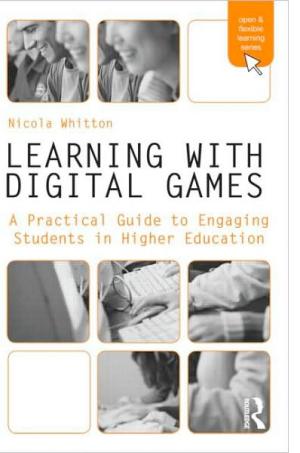
Written for Higher Education teaching and learning professionals, Learning with Digital Games provides an accessible, straightforward introduction to the field of computer game-based learning. Up to date with current trends and the changing learning needs of today’s students, this text offers friendly guidance, and is unique in its focus on post-school education and its pragmatic view of the use of computer games with adults. Learning with Digital Games enables readers to quickly grasp practical and technological concepts, using examples that can easily be applied to their own teaching. The book assumes no prior technical knowledge but guides the reader step-by-step through the theoretical, practical and technical considerations of using digital games for learning. Activities throughout guide the reader through the process of designing a game for their own practice, and the book also offers: A toolkit of guidelines, templates and checklists. Concrete examples of different types of game-based learning using six case studies. Examples of games that show active and experiential learning Practical examples of educational game design and development. This professional guide upholds the sound reputation of the Open and Flexible Learning series, is grounded in theory and closely links examples from practice. Higher Education academics, e-learning practitioners, developers and training professionals at all technical skill levels and experience will find this text is the perfect resource for explaining how to integrate computer games into their teaching practice. A companion website is available and provides up-to-date technological information,additional resources and further examples. (From the Publisher)
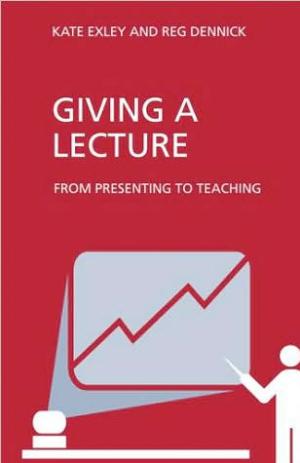
The second edition of Giving a Lecture builds upon the reputation and success of the Key Guides for Effective Teaching in Higher Education series. It is an excellent resource for those new to teaching at the University and College level and for those who just want to reflect upon and refresh their lecturing practice. The best selling first edition has been fully revised, and this edition continues to cover all the basics on how to go about lecturing while maintaining its jargon-free and accessible style. New lecturers will find the second edition equips them with the essential tools and guidance for delivering a successful lecture, and explains exciting new developments along with the fundamentals of lecturing. Addressing a number of rapid developments that have occurred since its first publication in 2004, the second edition provides: * A new chapter on podcasting and e-lecturing * Much more on the effective use of PowerPoint * Guidance on using interactive handsets to promote active learning and engagement * Consideration of the role of Lectures in problem based learning (PBL) courses * An expanded chapter that addresses current diversity/inclusivity issues * A fresh look with new Illustrations * Updated 'Recommended Reading and Web-Resource' sections This handy guide uses a multi-disciplinary approach based on sound educational theory to provide clear guidance and engaging ideas on giving a memorable and motivational lecture. Readers will find its straightforward approach is both readable and very practical, and new University and College Teachers, Graduate Teaching Assistants, Part-time Tutors, Teaching Clinicians and Practitioners, together with those interested in educational and staff development, will find this book provides them with all the guidance they need to lecture with confidence and skill. (From the Publisher)